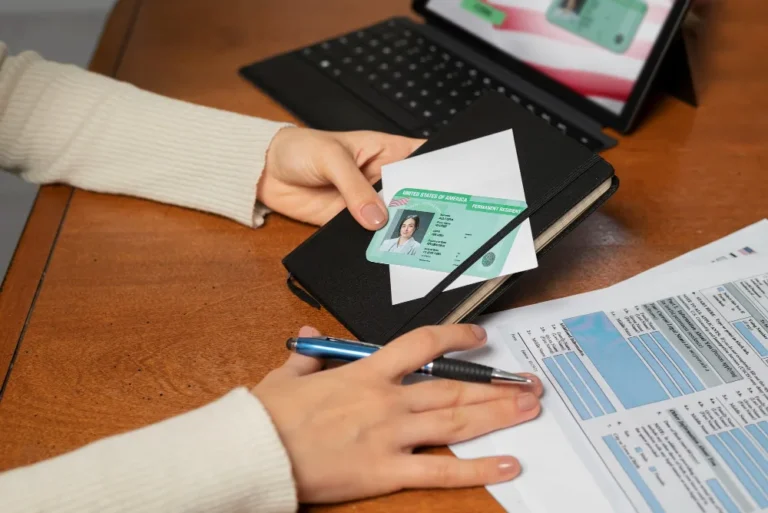
Canada Direct PR from India: Easy 2025 PR Process Explained
Canada remains one of the most preferred immigration destinations for skilled professionals from India. With over 120,000 Indians granted Canada direct PR from India in 2024, representing nearly 40% of all new Canadian permanent residents, it’s clear why this pathway is so popular. The year 2025 brings new policies and streamlined procedures, making it essential for aspiring immigrants to understand the updated process, costs involved, and document requirements.
This comprehensive guide covers every critical detail you need for a successful application. Whether you’re a first-time applicant or reapplying, follow these steps carefully to make your Canada PR dream a reality.
Understanding Canada Direct PR from India
What is Direct PR, and who is eligible?
Canada direct PR from India refers to obtaining permanent residency without needing a temporary study or work visa first. The main pathways for direct PR include:
- Express Entry: A points-based federal immigration system that ranks candidates based on factors like age, education, language proficiency, work experience, and adaptability.
- Provincial Nominee Programs (PNPs): Provinces nominate candidates with skills tailored to their labour market needs.
Eligibility Requirements:
- Skilled workers in managerial, professional, or technical roles.
- Minimum 67 points on the federal eligibility grid.
- Good health with medical clearance.
- Clean police background for security clearance.
- Proficiency in English or French.
- At least one year of work experience in TEER levels 1, 2, or 3.
- Minimum education requirement: Bachelor’s degree or equivalent.
Note: Permanent Residency grants the right to live, work, and study anywhere in Canada but differs from citizenship, which allows voting and obtaining a Canadian passport.
Planning a trip? Check out Canada Visitor Visa Processing Time from India: A Comprehensive Guide.
Key Benefits of Canada PR in 2025
Here are some major advantages that come with getting a direct Canada PR from India:
- Universal healthcare: Coverage of medically required care.
- Social benefits: Ability to receive social benefits, including a child tax credit, employment insurance, and the Canada Pension Plan.
- Good quality education: On the part of the applicant and the family members.
- Citizenship through pathway: It is after completion of the residence requirement of about 3 years in a period of 5 years.
- Unemployment Benefits: Financial support through Employment Insurance if you lose your job, helping cover living expenses while you search for new work.
Canada PR Process from India: Step-by-Step Guide in 2025
Step 1: Check Eligibility & Calculate CRS Score
Start your journey by evaluating your eligibility and CRS points:
- Federal Eligibility Grid ( 67 points) factors:
- Age
- Education
- Skilled work experience
- Language proficiency
- Adaptability (previous Canadian work/study or relatives)
- CRS (Comprehensive Ranking System): Ranks candidates from the Express Entry pool with a maximum of 1200 points based on skills, age, education, job offers (now removed), and other factors.
| CRS Factor | Maximum Points | Explanation |
| Age | 12 | Highest points for ages 18–35; points decrease gradually from age 36 to 47. |
| Education | 25 | Points are based on the highest level of education credential evaluated against Canadian standards. |
| Work Experience | 15 | Points awarded for skilled work experience, either foreign or Canadian, with more years scoring higher. |
| Language Proficiency | 28 | Points for English/French skills tested by IELTS, CELPIP, or TEF; higher proficiency earns more points. |
| Adaptability | 10 | Points for factors aiding settlement, like previous Canadian work/study or relatives in Canada. |
| Job Offer Points | 0 (Removed) | As of March 25, 2025, no points are awarded for job offers, reflecting policy changes. |
Check out our CRS Score Calculator
Step 2: Educational Credential Assessment (ECA)
Validating your foreign educational qualifications with Canadian standards is mandatory.
- Designated ECA agencies:
- World Education Services (WES)
- International Credential Assessment Service of Canada (ICAS)
- Comparative Education Service (CES)
- International Qualifications Assessment Service (IQAS)
- International Credential Evaluation Service (ICES)
- Process:
- Submit degrees and transcripts.
- The agency assesses equivalency.
- Receive your ECA report, required when creating your Express Entry profile.
Want to apply to Canada? Calculate Your Visa Eligibility Now!
Step 3: Language Proficiency Test
Prove your English or French language ability by taking authorised language tests.
| Test | Accepted For | Minimum Score Required |
| IELTS | Express Entry, PNPs | CLB 7 / IELTS 6.0 in each band |
| CELPIP | Express Entry | CLB 7 |
| TEF | French-speaking immigration streams | Equivalent of CLB 7 |
Preparation Tips:
- Practice all sections (Speaking, Listening, Reading, Writing).
- Utilise official sample tests.
- Schedule your test early since slots fill up fast.
Step 4: Create Your Express Entry Profile
- Register on IRCC’s website.
- Input accurate personal, education, work history, language test results, and your ECA report.
- Your profile enters the Express Entry pool, valid for 12 months.
- Profile renewal is possible if no ITA is received within this period.
Step 5: Receive Invitation to Apply (ITA) & Submit Application
- When your CRS ranks above the current cutoff, you receive an ITA.
- You have 60 days to submit:
- Complete the application form.
- All supporting documents.
- Applicable application fees.
Important: Prepare documents beforehand and submit them accurately to avoid processing delays.
Step 6: Medical Exams, Police Clearances & Biometrics
Applicants and accompanying family must:
- Undergo medical exams with IRCC-approved physicians.
- Obtain police clearance certificates from all countries where they have lived 6+ months since age 18.
- Provide biometrics (fingerprints and photo) at designated centres.
Step 7: PR Approval & Landing in Canada
- If approved, receive Confirmation of Permanent Residence (COPR) and PR visa.
- Land in Canada before the COPR expiry by presenting documents at the border.
- Obtain a PR card and officially become a permanent resident.
Cost of Canada PR from India in 2025
Planning your budget is crucial. Here’s a detailed breakdown of the cost of Canada PR from India:
| Expense | Cost (CAD) | Approximate Cost (INR) |
| Application Filing Fee | 950 | ₹58,000 |
| Right of Permanent Residency | 575 | ₹35,000 |
| Educational Credential Assessment | 240–300 | ₹15,000–₹18,000 |
| Language Test (IELTS/CELPIP) | 250–300 | ₹15,000–₹18,000 |
| Medical Examination | 100–200 | ₹6,000–₹12,000 |
| Police Clearance Certificate | 50–100 | ₹3,000–₹6,000 |
| Biometrics Fee | 85 | ₹5,200 |
Total Estimated Cost: CAD 2,250–2,510 (₹1,37,000–₹1,53,000) per adult applicant.
Proof of Funds Requirement
Applicants must show sufficient funds to support themselves and their families post-arrival.
| Family Size | Funds Required (CAD) | Approximate INR Equivalent |
| 1 | 15,263 | ₹9,30,000 |
| 2 | 19,001 | ₹11,60,000 |
| 3 | 23,361 | ₹14,25,000 |
| 4 | 28,362 | ₹17,30,000 |
Funds must be liquid and verifiable via recent bank statements.
Want to start your journey today? Read Unlocking Canada PR: What You Need to Know!
List of Documents Required for Canada PR from India in 2025
To apply for Canada PR from India in 2025, ensure you have key documents like a valid passport and birth certificate ready. These documents confirm your identity and family ties, forming the foundation for a successful application.
Core Documentation Checklist
Ensure you have:
- Valid Passport: Your lifeline document is the valid passport, which is your national travel document and identification document. It should be up-to-date and will be applicable in all the application processes, such as the issuance of visas and entry into Canada.
- Birth Certificate: It is used to confirm your date and place of birth and to define your identity and family relationship, which is documented in the Birth Certificate. It can be required before conducting background checks and in the establishment of a dependent relationship.
- Educational Credential Assessment (ECA) Report: An ECA report is received by authorised bodies to confirm that your educational qualifications in another country are on par with the Canadian norms. It is important to gain points in the education area of your PR application.
- Language Test Results (IELTS, CELPIP, TEF): You have standardised test scores (IELTS, CELPIP, TEF) that indicate your proficiency in either English or French, which are the two official languages practised in Canada. Your scores determine your eligibility and CRS points on Express Entry and other immigration programs.
- Work Experience Reference Letters: These letters are the ones that are given by your employers, and they contain employment titles, descriptions of work, salary, and the periods of employment. They can prove your experienced, skilled work history, which is important to comply with the immigration requirements.
- Proof of Funds (Bank Statements or Fixed Deposits): are documents that verify that you can afford to take care of yourself and your family once you come to Canada. Bank statements, fixed deposit receipts, or official bank documents with easily available money are accepted.
- Police Clearance Certificates: Police clearance certificates are mandatory in all countries where you have resided for at least six months or even after the age of 18 years old. They determine your good behaviour and aid the IRCC in evaluating security threats.
- Medical Examination Report: A report from an IRCC-approved panel physician showing that you meet Canada’s health requirements. This minimises public health risks and ensures you are admissible on medical grounds.
- Recent Passport-Sized Photographs (per IRCC Specs): Photographs must meet IRCC’s strict specifications in size and format and be used for identification on your PR application and visa documents. Typically, two identical photos are required.
- Marriage Certificate (if applicable): This official document certifies your marital status and may be required to include your spouse as a dependent in the application. It helps confirm family composition.
- Provincial Nomination Certificates (if applicable): If you have received a nomination from a Canadian province or territory under a PNP, this certificate verifies your nomination and adds significant CRS points towards your application.
Additional Documents for Specific Immigration Streams
Depending on your stream:
- Business/investor applicants: Submit business plans and investment proof.
- Family sponsorship stream: Provide relationship proofs and affidavits.
- PNP applicants: Include nomination certificates and provincial forms.
Canada PR Processing Time & 2025 Policy Updates
Canada PR processing times depend on the program. Express Entry typically takes 6 to 8 months, while Provincial Nominee Programs (PNPs) can take 8 to 12 months due to additional provincial steps. Knowing these timelines helps applicants plan their immigration journey effectively in 2025.
| Immigration Program | Average Processing Time |
| Express Entry | 6 – 8 months |
| Provincial Nominee Programs (PNPs) | 8 – 12 months |
2025 Policy Updates Impacting Indian Applicants
- Removal of job offer points from CRS scoring increases emphasis on education and language proficiency.
- Introduction of new PR pathways for skilled refugees.
- Simplification of document authentication and proof of funds for Indian applicants.
Also Read: Best Canada PR Visa Consultants in Mumbai!
Common Challenges & How to Overcome Them
Navigating the Canada PR process can be challenging, especially in a competitive Express Entry environment where maximizing your CRS score and ensuring document accuracy are critical for success.
CRS Score & Competition
- Without a job offer, increasing your CRS score is crucial.
- Ways to improve:
- Enhance your language test scores beyond the minimum CLB 7.
- Gain additional skilled work experience.
- Apply for Provincial Nomination to receive an additional 600 CRS points.
Document & Proof of Funds Issues
- Ensure all documents are authentic, properly translated, and valid.
- Provide clear and verifiable proof of funds.
- Incomplete or incorrect documents can cause delays or refusals.
Conclusion
To go through the Canada direct PR from India process, one needs planning, preparation of documents, and keeping pace with policy changes in 2025. These steps will perform better since they help ensure that you know whether you are eligible, organise your finances, and gather the necessary documents.
Apply as soon as possible and seek the advice of experts in case you need to be successful in this venture. Connect with Visaaxis.
Frequently Asked Questions (FAQs)
Q1: Is it possible to secure Canada directly pr right out of the India sample and without a job offer option?
Ans. Yup, you may apply even in a job offer-free case with the Express Entry or numerous PNP programs, so long as you fit the eligibility and the Comprehensive Ranking System.
Q2: What is the lowest mark in the IELTS to be able to be a PR in Canada?
Ans. Canada PR requires that most programs for skilled workers have a minimum CLB 7 and an IELTS score of 6.0 in each of the four bands (Listening, Reading, Writing, and Speaking). A higher score enhances your Express Entry profile, but a result below this makes you ineligible to most programs.
Q3: How much does it cost to do PR in Canada and India?
Ans. An average Canada PR in India will cost about 2,500 to 3,000 CAD per adult, plus government charges, language tests, and biometric charges. Other costs such as medicals, police certification, and document translation can be applied. The costs of these have to be planned so that there is a smooth application process and that delays are prevented.
Q4: Which documents are required for Canada PR in India?
Ans. Core papers are passport, ECA report, language scores, work experience letters, proof of funds, police clearance certificates, medical reports, photos, and the stream-specific papers.



